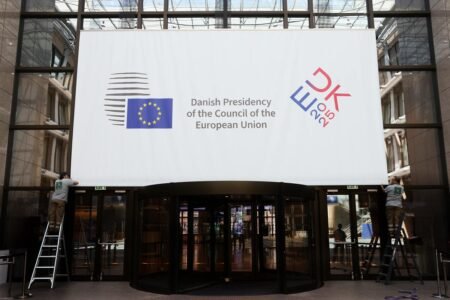Promoting sustainability and social responsibility in public sector procurement has recently received more attention. The UK Government has recognized this trend and has taken significant steps to ensure that public sector organizations prioritize ethical and sustainable practices when procuring goods and services. One such step is the Procurement Policy Note (PPN) 06/20, which provides public sector bodies with information and guidance on implementing ethical procurement practices.
This PPN aims to increase transparency in the procurement process and promote sustainability and social responsibility in public sector procurement. In this blog post, learn more about ppn 06 20, the role of PPN 06/20 in promoting sustainability and social responsibility in public sector procurement, and why public sector organizations must comply with this policy note.
Benefits of PPN 06/20
The Public Procurement Network (PPN) is a forum for public sector procurement practitioners worldwide to share knowledge and best practices on sustainable and responsible procurement.
The PPN was established in 2006 and has grown to over 1,700 members in more than 80 countries. The PPN provides a unique opportunity for practitioners to learn from each other and build the capacity to improve public procurement’s social, economic, and environmental outcomes.
The PPN has four main objectives:
1. To promote sustainable and responsible procurement practices;
2. To provide a platform for sharing knowledge and best practice on sustainable and responsible procurement;
3. To build the capacity of public sector procurement practitioners; and
4. To influence policy and decision-makers on sustainable and responsible procurement issues.
Reducing Environmental Impact and Sustainability
Public procurement is a significant part of many governments’ efforts to reduce environmental impact and promote sustainability. Public procurement accounts for approximately $1.3 trillion in spending each year in the United States, making it one of the world’s largest purchasers of goods and services.
As a result, public procurement can drive significant change in the marketplace by shifting spending towards more sustainable products and services. For example, governments can help reduce greenhouse gas emissions and other environmental impacts by procuring energy-efficient products and services.
In addition to reducing environmental impact, public procurement can also promote social responsibility. For instance, by procuring from businesses that employ underutilized groups such as minorities or women, governments can help support these groups and create more inclusive workplaces.
By taking advantage of its purchasing power, the public sector can play a crucial role in promoting sustainability and social responsibility in the marketplace.
Social Responsibility in Public Sector Procurement
The Scottish Government’s Public Procurement Framework (SPPF) includes several measures to ensure that public sector bodies take social responsibility into account when procuring goods and services.
These include the requirement for all public bodies to have a policy on sustainable and responsible procurement and the use of guidance and tools such as the Scottish Government’s Social Value Toolkit.
The Scottish Government is also working with COSLA, local authorities, and other public bodies to develop a Public Procurement Network (PPN). The PPN will provide a forum for sharing best practices on sustainable and responsible procurement. It will also support the development of guidance and tools to help public bodies embed social responsibility into their procurement processes.
How PPN 06/20 Can Help Reach Those Goals
The PPN 06/20 can help the public sector to become more sustainable and socially responsible in several ways.
For example, it can help ensure that public sector organizations procure goods and services from suppliers that meet specific environmental and social standards. This can reduce the overall environmental impact of the public sector and ensure that public sector organizations support businesses that operate socially responsibly.
In addition, the PPN 06/20 can also increase the amount of information available to buyers about the environmental and social impacts of different products and services. This can help buyers to make more informed choices about which products and services they purchase and ultimately lead to more sustainable and socially responsible procurement decisions by the public sector.
Challenges and Solutions to Implementing PPN 06/20
Many challenges need to be considered when implementing PPN 06/20, which promotes sustainability and social responsibility in public sector procurement. Some of the main challenges include the following:
1. Ensuring that all stakeholders are aware of the policy and its requirements
2. ensuring that the policy is implemented consistently across all government departments and agencies
3. ensuring that the policy does not create any unintended negative consequences
4. monitoring and evaluating the impact of the policy over time.
There are several potential solutions to these challenges, which include:
1. Providing training and guidance to all stakeholders on the requirements of the policy
2. Creating a central repository of information on the policy and its implementation progress
3. Conducting regular audits of departments and agencies to ensure compliance with the policy
4. Evaluating the impact of the policy regularly and making adjustments as necessary
Conclusion
In conclusion, PPN 06/20 is essential in promoting sustainability and social responsibility in public sector procurement. Its focus on involving SMEs, providing training to suppliers, and encouraging collaboration between stakeholders encourage sustainable practices that benefit society as a whole.
Additionally, it guides how the public sector can make informed choices when procuring services or goods based on value-for-money considerations that consider environmental impact and the need to provide fair working conditions. PPN 06/20 is an essential tool for government departments looking to promote sustainability and social responsibility through their procurement practices.







